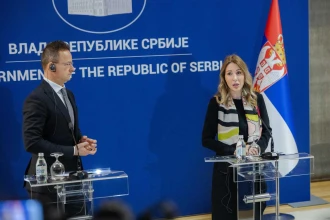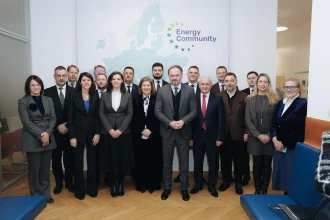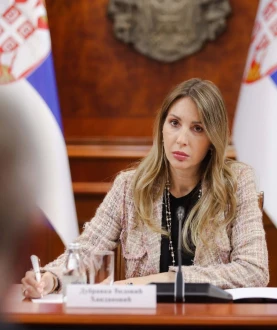Minister of Mining and Energy Dubravka Djedović Handanović met today with the International Monetary Fund (IMF) Mission, led by Annette Kyobe. The main topics discussed included the implementation of reforms and priority investments in the energy sector.
Djedović Handanović Meets with IMF Mission to Discuss Reforms and Priority Projects in the Energy Sector
The Minister stated that over the past two years, significant steps have been taken to improve the institutional and regulatory framework, primarily through the adoption of amendments to the Energy Law, the Law on the Use of Renewable Energy Sources (RES), and numerous by-laws based on these laws. “Ambitious goals were also set in the Reform Agenda, and by the end of last year, had already been achieved in the electricity sector, with progress also made in the gas sector. The Energy Community has recognized Serbia as a leader in reforms in the electricity and RES sectors, and we have made the most progress in the region in terms of preparedness for electricity market coupling with the EU market,” said Djedović Handanović.
The improvement of the regulatory framework has stimulated greater private sector investment, as evidenced by two successfully completed rounds of auctions for market premiums and an 85 percent increase in wind and solar capacity over the past two years. Additionally, the number of prosumers has increased fifteenfold. “When it comes to the public sector, a wind farm and a solar power plant under EPS will soon be connected to the grid, and a project for the construction of one gigawatt of solar power plants with 200 megawatts of battery storage has been contracted, which will significantly "green" EPS’s portfolio, and efforts are underway to secure the necessary financing,” the Minister noted. She added that in the past year, major capital investments in the thermal sector were completed, such as the construction of Kostolac B3 Thermal Power Plant and the desulfurization plant at TENT A, which will enhance energy security and align the operation of the largest thermal capacities with both European and domestic environmental regulations. The energy sector priority plan has been updated through amendments to the Baselines of the Energy Infrastructure Development Plan and Energy Efficiency Measures until 2028, with projections up to 2030, which the Government of Serbia adopted yesterday," the Minister noted.
With the adoption of the Integrated National Energy and Climate Plan, as well as the new Energy Development Strategy, the strategic framework for the development of the energy sector has been completed, defining the direction and goals of the energy transition until 2050, the Minister said. "This will entail significant investments in the hydropower and renewable energy sectors, along with a gradual decarbonization of the energy sector, while ensuring the provision of new base-load capacities. Within this framework, one of the scenarios under consideration also includes the possibility of using nuclear energy after 2040," Djedović Handanović added.
The Minister emphasized that the reforms EPS reforms are progressing well, noting that the largest number of measures have so far been implemented in optimizing the organization, primarily in administration, through a 40 percent reduction in [the number of] management levels at headquarters and branches. Among other improvements, risk management within the company has been improved, work on optimizing public procurement has commenced, and a decarbonization plan for EPS is also being prepared.
The meeting also addressed supply security in the oil sector in the context of the announced U.S. sanctions on NIS, as well as preparations for the introduction of carbon pricing.
The Minister reminded that Serbia is currently the only country in the region prepared to implement a system for measuring, reporting, and verifying carbon emissions, which is a prerequisite for introducing carbon pricing. She explained that various options and methods for applying carbon pricing in the energy sector have been analyzed, and that the adopted solution must ensure sustainable decarbonization, with consequences acceptable to the economy, citizens, and energy companies, and without jeopardizing supply security.
The new Head of the IMF Mission to Serbia, Annette Kyobe, praised the exceptional work carried out in the previous period in establishing a strategic and regulatory framework in the energy sector and added that the energy sector is an important component in the review of Serbia’s current program with the IMF.
The meeting, held as part of the first review of the implementation of the economic program supported by the Policy Coordination Instrument, which the IMF approved for Serbia at the end of 2024 and which does not foresee the use of financial resources, was also attended by the IMF’s Resident Representative in Belgrade, Lev Ratnovski.


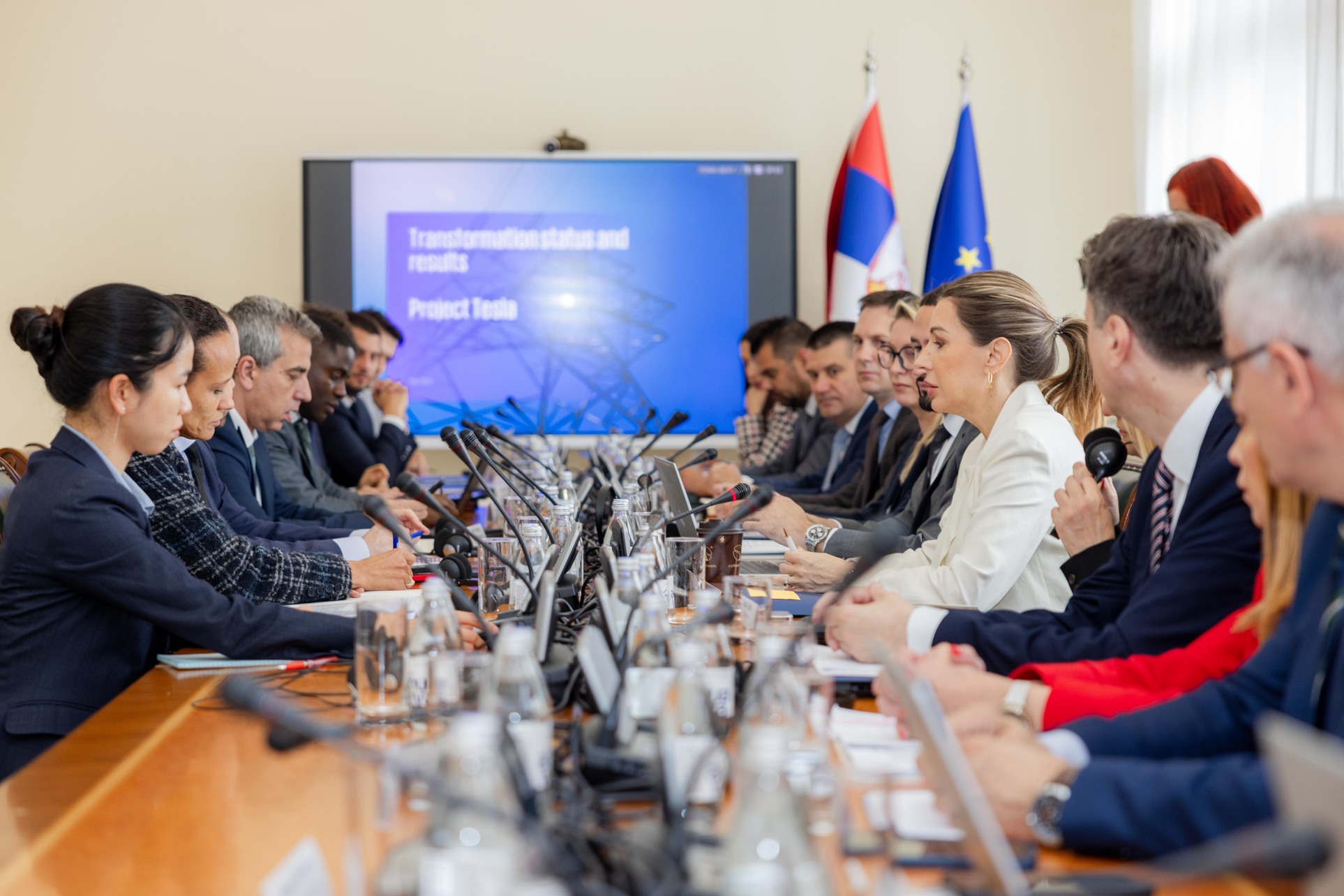
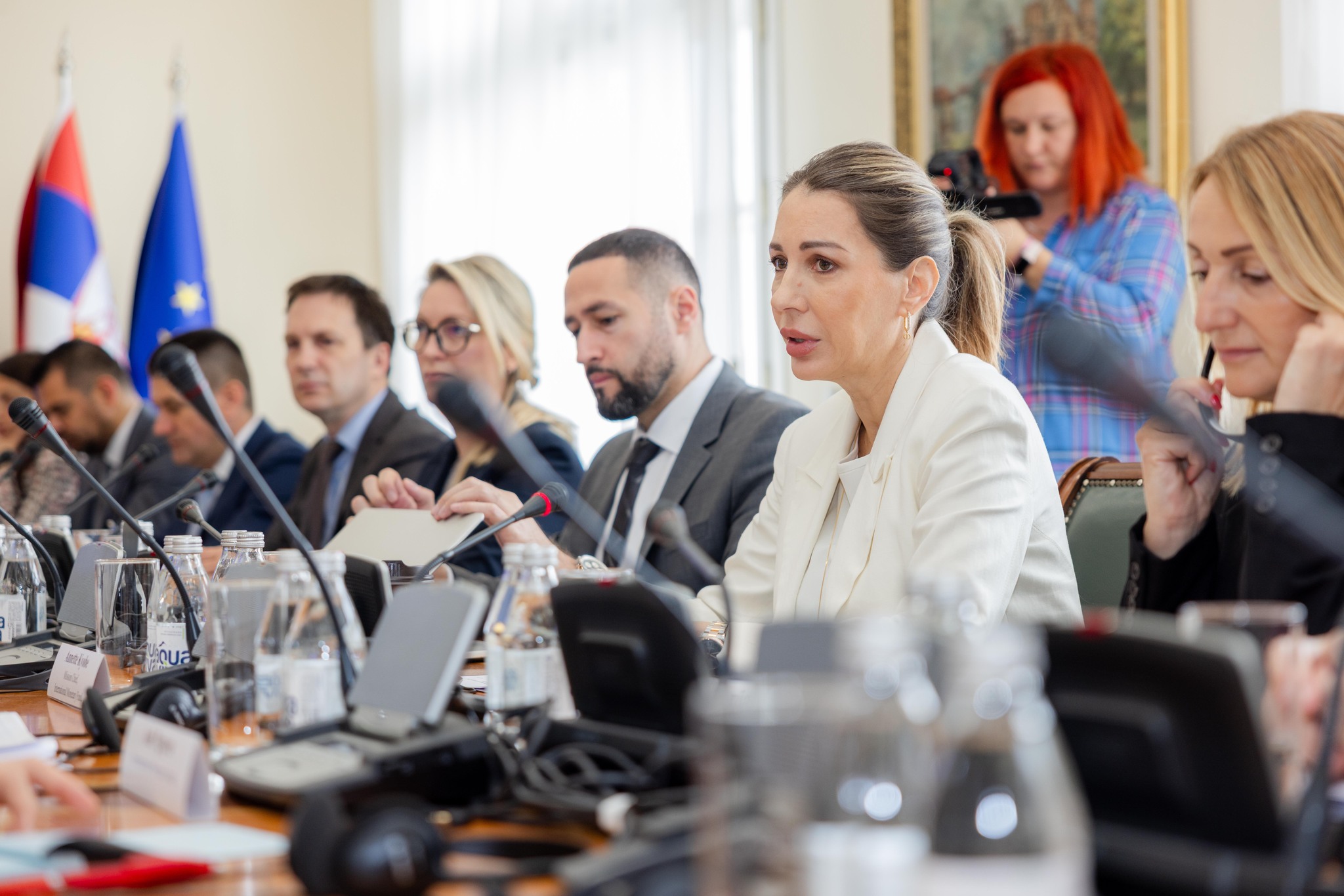
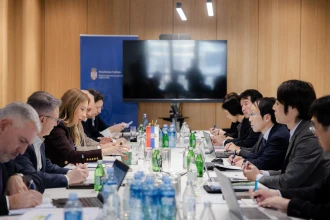
.webp)
